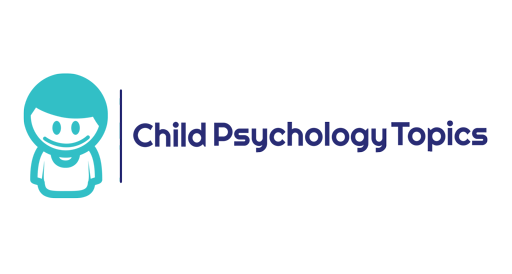The prevalence of autism has steadily increased over the years, creating a pressing need for effective therapeutic interventions. In recent times, music therapy has emerged as a promising method for helping children with autism improve their communication, social interaction, and emotional expression.
This article delves into the profound impact of music therapy on the lives of children with autism, exploring its various dimensions and benefits.

Understanding Autism Spectrum Disorder (ASD)
Autism Spectrum Disorder (ASD) is a complex neurodevelopmental condition characterized by a spectrum of challenges that manifest in varying degrees among individuals. This disorder typically becomes apparent in early childhood, impacting a child’s behavior, communication, and social interaction.
While the specific etiology of ASD remains largely unknown, researchers have identified various genetic and environmental factors that may contribute to its development.
Key Characteristics of ASD
1. Social Communication Challenges: Children with ASD often struggle with understanding and using nonverbal communication cues, such as gestures, facial expressions, and tone of voice. They may find it challenging to initiate or sustain conversations, leading to difficulties in building and maintaining social relationships.
2. Restricted and Repetitive Behaviors: Individuals with ASD often display a strong preference for routine and may become distressed when their routines are disrupted. They may engage in repetitive movements or exhibit intense, focused interests in specific topics, objects, or activities.
3. Sensory Sensitivities: Many children with ASD experience heightened or diminished sensory responses, leading to over- or under-sensitivity to stimuli such as noise, lights, textures, or smells. These sensitivities can significantly impact their ability to function in various environments and can contribute to emotional distress or behavioral difficulties.
The Impact of ASD on Daily Life
Living with ASD can present significant challenges for children and their families. Challenges in communication and social interaction may lead to feelings of isolation and difficulty in forming meaningful connections. Additionally, the rigid adherence to routines and resistance to change can pose challenges in adapting to new environments or situations, such as transitioning between activities or coping with unexpected events.
Supporting Children with ASD
Understanding the unique needs and challenges faced by children with ASD is crucial for providing effective support and interventions.
Creating a structured and supportive environment that accommodates sensory sensitivities and encourages clear, consistent communication can significantly improve their quality of life.
Implementing specialized educational and behavioral interventions tailored to their strengths and needs can foster skill development and independence.
Through a comprehensive understanding of the intricacies of ASD, we can better appreciate the significance of tailored interventions like music therapy in fostering the holistic development and well-being of children with autism.
By acknowledging and embracing the diverse spectrum of behaviors and challenges associated with ASD, we can promote a more inclusive and supportive environment for individuals living with this condition.

The Therapeutic Potential of Music
Music, with its innate ability to evoke emotions and create connections, has long been recognized as a powerful medium for healing and self-expression.
Its therapeutic potential extends across a wide spectrum of physical, emotional, and cognitive domains, making it a valuable tool in various therapeutic settings.
When harnessed effectively, music can facilitate positive changes in mood, behavior, and overall well-being. Here is a closer look at the multifaceted therapeutic potential of music:
1. Emotional Expression and Regulation: Music has the unique capacity to evoke and regulate emotions. It can serve as a powerful outlet for emotional expression, allowing individuals to convey and process complex feelings that may be challenging to articulate verbally. Moreover, actively engaging with music can help regulate emotions by providing a sense of comfort, relief, and empowerment, fostering emotional resilience and well-being.
2. Stress Reduction and Relaxation: Listening to soothing melodies or participating in musical activities can induce a state of relaxation and reduce stress levels.
Music has been found to lower cortisol levels, the hormone associated with stress, thereby promoting a sense of calmness and tranquility. Incorporating music into relaxation techniques, such as guided imagery or mindfulness exercises, can amplify its stress-reducing effects.
3. Cognitive Stimulation and Memory Enhancement: Engaging with music stimulates various cognitive processes, including memory, attention, and executive functioning. Musical activities such as singing, playing instruments, or rhythmic exercises can enhance cognitive stimulation, promoting neuroplasticity and improving memory retention.
In therapeutic contexts, music has been utilized to support memory recall and cognitive rehabilitation in individuals with neurological impairments.
4. Motivation and Behavioral Encouragement: The rhythmic and melodic elements of music have a motivating effect, encouraging individuals to participate actively and engage in therapeutic interventions. Music can catalyze initiating and sustaining behavioral changes, promoting self-confidence, and fostering a sense of achievement.
Integrating music into therapy sessions can enhance motivation, facilitate goal-oriented behaviors, and reinforce positive therapeutic outcomes.
5. Social Connection and Communication: Music has a profound impact on social interaction and communication. Participating in musical activities, such as group singing or collaborative instrumental performances, fosters a sense of belonging and strengthens interpersonal connections.
Through music, individuals can communicate and express themselves in nonverbal ways, transcending linguistic barriers and fostering a sense of unity and empathy among participants.
By harnessing the therapeutic potential of music, practitioners and caregivers can create nurturing environments that promote emotional well-being, cognitive development, and social engagement.
Integrating music into therapeutic interventions, such as music therapy, offers a holistic approach to addressing diverse emotional and cognitive needs, ultimately contributing to improved overall quality of life for individuals facing various challenges.

Impact of Music Therapy on Cognitive Development
Music therapy, as a structured and evidence-based intervention, has demonstrated significant potential in enhancing cognitive development, particularly in populations with neurodevelopmental disorders such as autism.
Through a variety of musical activities, including listening, singing, playing instruments, and rhythmic exercises, music therapy can stimulate various cognitive processes, promoting cognitive development and enhancing overall cognitive functioning.
Here are some specific ways in which music therapy contributes to cognitive development:
1. Attention and Focus: Engaging in music therapy activities requires sustained attention and concentration. Through rhythmic patterns and melodic variations, music therapy can improve attention span and focus, fostering the ability to attend to tasks and stimuli for extended periods.
This enhanced attentional control can generalize to other areas of cognitive functioning, promoting improved academic performance and cognitive engagement.
2. Memory Enhancement: Music has a unique ability to evoke memories and emotions, making it a valuable tool for enhancing memory recall and retention. Music therapy interventions that involve recalling familiar tunes, learning new melodies, or creating musical narratives can stimulate memory retrieval and strengthen memory encoding processes.
This enhanced memory capacity can contribute to improved learning outcomes and facilitate the development of effective memory strategies.
3. Executive Functioning: Music therapy interventions often involve structured, goal-oriented activities that promote the development of executive functioning skills. Through activities such as improvisation, composition, and musical problem-solving, individuals can enhance their cognitive flexibility, planning abilities, and decision-making skills.
By encouraging participants to navigate complex musical tasks, music therapy fosters the development of cognitive processes necessary for effective self-regulation and adaptive behavior.
4. Language and Communication Skills: Music, with its inherent rhythmic and melodic components, can serve as a platform for enhancing language and communication skills. Music therapy interventions that incorporate singing, rhythm-based exercises, and lyric analysis can improve language comprehension, expressive communication, and speech articulation.
The multisensory nature of music facilitates a holistic approach to language development, enabling individuals to strengthen their linguistic abilities and promote effective communication strategies.
5. Spatial and Mathematical Reasoning: The structural elements of music, including rhythm, tempo, and pitch, provide a framework for developing spatial and mathematical reasoning skills. Engaging in musical activities that involve spatial awareness, temporal sequencing, and pattern recognition can enhance individuals’ spatial and mathematical abilities.
By integrating mathematical concepts into musical experiences, music therapy promotes the development of cognitive skills essential for problem-solving and logical reasoning.
By harnessing the cognitive benefits of music therapy, individuals can experience improvements in attention, memory, executive functioning, language skills, and spatial reasoning, ultimately fostering a comprehensive and holistic approach to cognitive development.
The integration of music therapy into educational and therapeutic settings highlights its potential as a valuable adjunctive intervention for promoting cognitive growth and enhancing overall cognitive functioning.

Enhancing Social Interaction and Communication Skills
One of the most profound impacts of music therapy lies in its ability to enhance social interaction and communication skills, particularly in individuals with conditions such as autism.
Through the inherent social and emotional elements of music, therapy interventions can foster a supportive and engaging environment that promotes social engagement, communication, and interpersonal connections.
Here is a closer look at how music therapy contributes to enhancing social interaction and communication skills:
1. Facilitating Nonverbal Communication: Music, with its rhythmic patterns and melodic variations, provides a nonverbal medium for communication. In music therapy sessions, individuals can express themselves nonverbally through body movements, gestures, and musical interactions.
This form of nonverbal communication fosters a sense of emotional expression and understanding, enabling individuals to communicate and connect with others in a meaningful and authentic manner.
2. Promoting Turn-Taking and Collaboration: Participating in musical activities, such as group singing or ensemble performances, encourages turn-taking and collaborative interactions. Music therapy interventions that emphasize collaborative music-making foster a sense of shared purpose and encourage individuals to engage in reciprocal communication.
By promoting cooperative exchanges and shared decision-making, music therapy cultivates a sense of teamwork and mutual respect, enhancing interpersonal relationships and social cohesion.
3. Developing Emotional Regulation and Empathy: Music has the power to evoke and regulate emotions, making it an effective tool for developing emotional regulation and empathy. Engaging with emotionally evocative musical experiences in a therapeutic setting enables individuals to recognize and regulate their emotions, fostering emotional awareness and empathy towards others.
By experiencing and expressing a range of emotions through music, participants can develop a deeper understanding of their own emotions and empathize with the emotional experiences of others, thereby strengthening interpersonal connections and social bonds.
4. Encouraging Verbal Expression and Communication: Music therapy interventions that integrate singing, songwriting, or lyrical analysis can facilitate verbal expression and communication. Music provides a structured and engaging platform for individuals to practice and improve their verbal communication skills, promoting language fluency, speech articulation, and vocal modulation.
Through the creative exploration of lyrics and musical narratives, individuals can develop confidence in expressing their thoughts, emotions, and ideas, thereby enhancing their overall communication skills and fostering meaningful interactions with others.
5. Fostering Social Confidence and Self-Expression: Engaging in music therapy activities that encourage self-expression and creativity can boost social confidence and self-esteem.
By providing a supportive and nonjudgmental environment for individuals to express themselves authentically, music therapy nurtures a sense of self-confidence and encourages active participation in social interactions.
The sense of accomplishment derived from musical achievements fosters a positive self-image. It encourages individuals to engage in social settings actively, promoting a sense of belonging and social integration.
By leveraging the social and emotional components of music, music therapy serves as a powerful catalyst for enhancing social interaction and communication skills, fostering a sense of connection and community among participants.
The inclusive and collaborative nature of music therapy interventions highlights its potential as a valuable tool for promoting social integration, fostering effective communication, and cultivating meaningful interpersonal relationships.
Conclusion
In conclusion, the transformative power of music therapy in the lives of children with autism cannot be overstated. Its ability to enhance cognitive development, foster social interaction, and improve emotional expression highlights its significance as a holistic therapeutic intervention.
As we continue to explore the incredible impact of music therapy, it is crucial to encourage open discussions and collective support for integrating this approach into mainstream interventions for children with autism.







